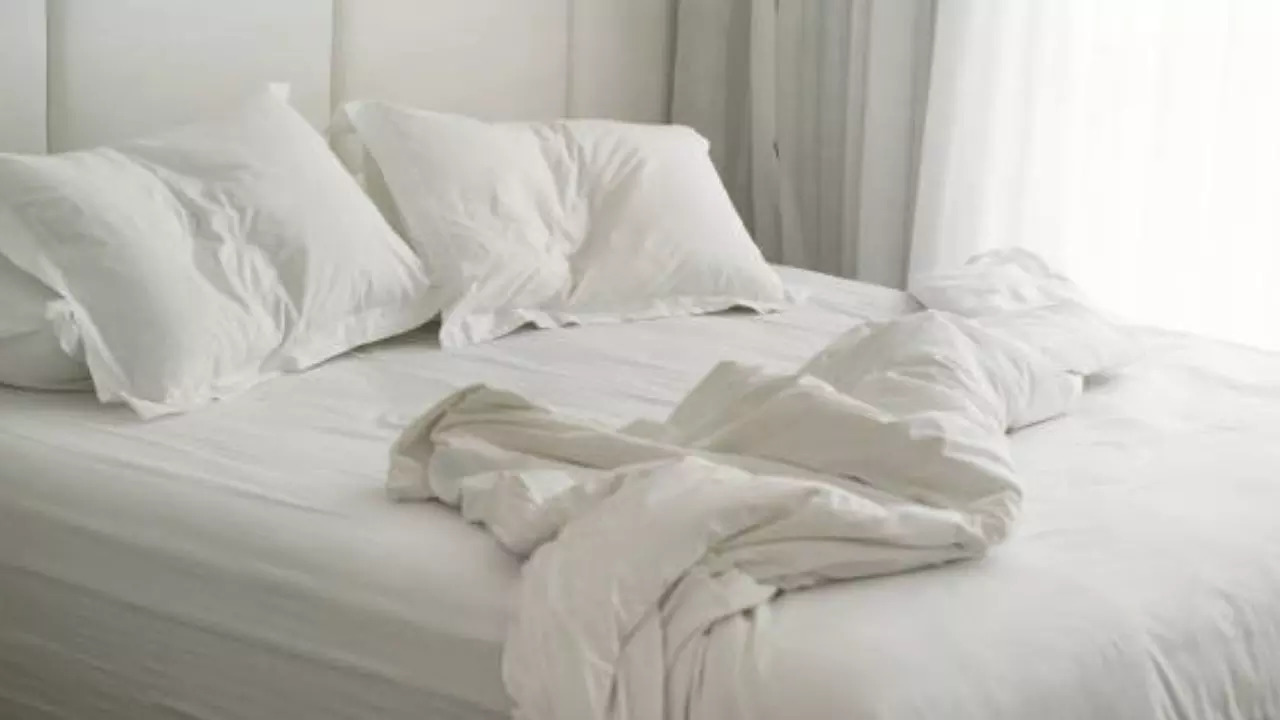Unwashed pillowcases have more bacteria than toilet seats in just seven days, study finds (Image credit: iStock)
If you don’t wash your sheets and pillowcases every week, some alarming statistics might motivate you to start doing so. Cleaning experts universally recommend washing bed linen at least once a week for optimal cleanliness and hygiene, a habit we should all adopt more regularly.
A recent study by mattress and bedding company Amerisleep sheds light on just how dirty unwashed bedding can get. The research revealed that bedding can accumulate as much bacteria as some of the most contaminated surfaces we encounter every day, including toilet seats, toothbrushes, and pet bowls. The longer bedding sits unwashed, the more bacteria it will multiply.
Amerisleep experimented on three volunteers, who were asked to refrain from washing their sheets and pillowcases for four weeks. Each week, samples were collected and sent to a lab for testing to measure bacteria levels. The results were shocking.
After just one week, pillowcases were found to harbor an average of 3 million colony-forming units (CFU) of bacteria per square inch. To put this into perspective, that’s 17,000 times more bacteria than found on a toilet seat. Bedsheets weren’t much better, with 5 million CFU after one week, which is almost 25,000 times more than the amount found on a bathroom doorknob.
As the study progressed, bacteria counts increased significantly. By week four, pillowcases had nearly 12 million CFUs (39 times more bacteria than a pet’s bowl) and bedsheets had an average of close to 11 million CFUs — more than five times more than a toothbrush holder.
So how dangerous are these germs? Some pose risks, while others are harmless. The study identified four common types of bacteria found on unwashed bedding, some of which can cause infections. The most prevalent were gram-negative bacilli, which the CDC says can lead to antibiotic resistance and infections. Bacilli, another bacteria found in the study, are known to cause food poisoning. Not all of the bacteria present were harmful, though: Gram-positive bacteria, which were also abundant on bedding, are typically harmless to humans.
Before you panic, it’s important to remember that bacteria are everywhere, and not all of them are dangerous. Some bacteria are essential to our survival. However, limiting exposure to harmful bacteria whenever possible is good practice, especially when it comes to the environment you sleep in.
To minimize the risk, the solution is simple: wash your sheets and pillowcases regularly. Weekly washing is essential to prevent the buildup of harmful bacteria. Regular cleaning not only keeps your bed fresh, but also promotes better hygiene and can prevent potential health problems. By taking this step, you can reduce unnecessary exposure to germs and ensure a cleaner, healthier sleeping environment.
Maintaining good hygiene at home is essential to keeping germs at bay and ensuring a healthy living environment. Here are five essential tips to follow:
Frequent handwashing: Wash your hands regularly with soap and water, especially after using the bathroom, handling raw food, or returning from outside. Proper hand hygiene is one of the most effective ways to prevent the spread of germs.
Regular disinfection: Frequently touched surfaces such as door handles, light switches, countertops, and electronic devices should be cleaned and disinfected daily. Using an appropriate disinfectant will eliminate harmful bacteria and viruses.
Kitchen cleanliness: Make sure your kitchen stays hygienic by washing dishes promptly, wiping down countertops, and regularly cleaning cutting boards and utensils. This reduces the risk of cross-contamination, especially when handling raw foods.
Proper food storage: Keep perishable foods refrigerated and avoid leaving leftovers at room temperature for too long. Store food in sealed containers to prevent contamination.
Ventilation: Keep your home well ventilated by opening windows to let in fresh air. This helps reduce indoor air pollutants and prevents germs from building up in closed spaces.
Disclaimer:
The information contained in this post is for general information purposes only. We make no representations or warranties of any kind, express or implied, about the completeness, accuracy, reliability, suitability or availability with respect to the website or the information, products, services, or related graphics contained on the post for any purpose.
We respect the intellectual property rights of content creators. If you are the owner of any material featured on our website and have concerns about its use, please contact us. We are committed to addressing any copyright issues promptly and will remove any material within 2 days of receiving a request from the rightful owner.

